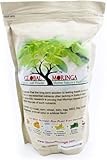Jarrow Formulas MK-7, 90 mcg, 60 Count
Product Description
Amazon.com

Offers an enhanced bioactive form of vitamin K2 from cultured Bacillus natto.

Ten times better absorbed than K1 from spinach. View larger.
Beyond Coagulation
The story of vitamin K began in 1929 when the Danish researcher Henrik Dam discovered its role in coagulation. Vitamin K is integral to the conversion of the amino acid glutamic acid (Glu) into gamma-carboxyglutamate (Gla). Proteins containing Gla are important in coagulation processes. These proteins work together in a complex cascade to create fibrin that strengthens platelets and helps to stop the flow of blood when necessary. Almost fifty years later, vitamin K benefits beyond coagulation were discovered.*
Vitamin K is a group name for a number of structurally related compounds including phylloquinone (vitamin K1) and menaquinones (K2 vitamins). The synthetic, short-chain vitamin K1 is commonly used in food supplements, but recently the natural, long-chain menaquinone-7 (MK-7) has also become available as a dietary supplement. All forms of vitamin K serve as a cofactor for the posttranslational carboxylation of certain protein bound glutamate residues, which are converted into gamma-carboxyglutamate (Gla). These Gla residues form calcium-binding sites that are essential for the activity of the proteins in which they are found. The most recognized Gla-containing proteins are the blood coagulation factors II, VII, IX, and X, which are all synthesized in the liver. Gla proteins not related to blood clotting are osteocalcin (synthesized in bone) and matrix Gla protein (mainly synthesized in cartilage and in the vessel wall).
For example, carboxylated matrix Gla protein binds calcium and helps guard against the deposition of calcium in arteries. Likewise, researchers have confirmed that vitamin K activates matrix Gla protein and promotes arterial health.*
Osteocalcin is the most abundant vitamin K-dependent protein in bone. It is synthesized by the bone forming cells known as osteoblasts and plays an important role in the regular deposition of hydroxyapatite in the bones. The amount of osteocalcin that is not carboxylated [under-carboxylated osteocalcin] is considered a sensitive measure of vitamin K status in bone, with an elevated percentage of under-carboxylated osteocalcin associated with low dietary intakes of vitamin K. As a result, bone health relies heavily on the activation of osteocalcin by vitamin K. Studies show that when supplemental vitamin K is given to people with inactive osteocalcin, active levels will rise.*
Modern scientific evidence has linked low vitamin K intake with a number of suboptimal health conditions. In addition, vitamin K supplements have been shown to help maintain healthy bone density and display a beneficial effect on the elastic properties of the arterial vessel wall.*
Superiority of K2
The K2 vitamins include the menaquinones, MK-7, MK-8, and MK-9 and are present in some fermented foods, most notably natto. Natto is a traditional Japanese fermented soybean food, which is produced by growing the MK-7 generating Bacillus natto on the surface of cooked soybean. Natto also happens to be the richest dietary source of vitamin K presently known, almost all of which occurs in the form of MK-7. The longer-chain menaquinones, including MK-7, are more hydrophobic, have longer half-lives and are incorporated into low-density lipoproteins. Moreover, MK-7 from natto, or Bacillus natto fermentation, is much better absorbed than K1 from spinach. While vitamin K1 is primarily absorbed by the liver, MK-7 is absorbed in extra hepatic tissues, such as the arterial wall, pancreas, and testes.*
A recent study compared the in vivo properties of two forms of vitamin K: MK-7 and K1. Researchers demonstrated that after oral ingestion, MK-7 is more effective in catalyzing osteocalcin carboxylation in bone.* They also noted that K1 declined to its baseline level within several hours, whereas MK-7 remained detectable for at least 4 days. The longer half-life means MK-7 is available to support bone and arterial integrity for much longer periods than other forms of vitamin K.*
During the last ten years, several studies have looked at the relationship between food intake and bone health. Evidence of stronger bones in people eating natto adds weight to the theory that people generally have insufficient serum levels of vitamin K2 for optimum bone and arterial health. Furthermore, a long-term population-based study, carried out in the Netherlands between 1990 and 2000, demonstrated that dietary intake of vitamin K2, but not vitamin K1, promoted optimum cardiovascular health.*
Warning:
Do NOT use if taking anticoagulant drugs (such as Warfarin) or other medications.
About Jarrow Formulas
Jarrow Formulas' complete line of over 350 nutritional products includes vitamins, minerals, probiotics, standardized herbal concentrates, amino acids, enzymes and enteral nutrition products. Customers can be assured of purity, value and potency when choosing these products.
What's in the Box
Jarrow Formulas MK-7, 60 Softgels.

Other Products from Jarrow Formulas:










